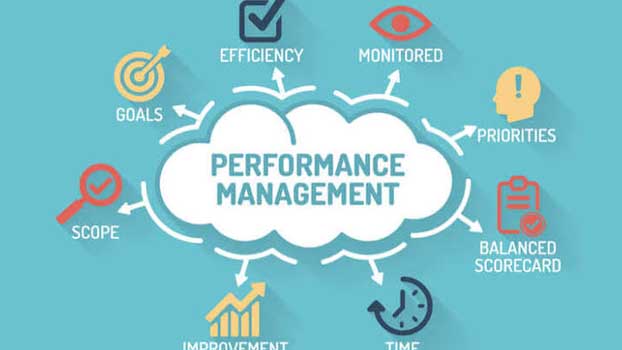Glimpse of Performance Management System
Employees must be competent enough for doing the assigned job properly


Employees are the most valuable assets of an organization. Productivity and success of an organization depend on problem-solving skill and technical knowledge of the employees. Employees must be competent enough for doing the assigned job properly. However, when an employee works for an organization for a certain period of time, his or her performance should be evaluated. Performance Management System (PMS) indicates how well an employee is fulfilling the job requirements. It is also an objective way of evaluating work-related behavior of an employee. It ensures democratic environment in management because managers ensure fair treatment with their subordinates based on their performance not on the basis of any personal relationship.
Employees shine with their performance in highlighting their potential. PMS can be regarded as a systematic process of doing few things. These are:
(1) Planning work and setting expectations
(2) Continually monitoring performance
(3) Developing the capacity to perform
(4) Periodically rating the performance in summarized form
(5) Rewarding good performance.
1. Planning: In any organization, work is planned out in advance. Planning means setting performance expectations for groups and individuals to channel their efforts towards achieving organizational objectives. Getting employees involved in the planning process will help them understand the organization’s goal what needs to be done, why it needs to be done, and how well it should be done.
All performance elements and standards should measurable, understandable, verifiable, equitable, and achievable. Through critical elements, employees are held accountable as individuals for work responsibilities. Employee performance plans should be flexible so that they can be adjusted for changing program objectives and work requirements.
2. Monitoring: Monitoring means consistently measuring performance and providing ongoing feedback to employees and work groups on their progress towards reaching their goals. This should be a vital component of performance management.
Ongoing monitoring provides the supervisor with the opportunity to check how well employees are meeting predetermined standards, and to make changes to unrealistic standards. By proper monitoring, supervisors can identify unacceptable performance at any time during the appraisal period, and provide assistance to address such performance rather than waiting until the end of the period when summary rating levels are assigned.
3. Developing: Employee developmental needs should be evaluated in order to manage their performance. Developing means increasing the capacity to perform through training, giving assignments that introduce new skills or higher levels of responsibility, improving work processes, or other methods. Providing employees with training and developmental opportunities encourages good performance, strengthens job-related competencies, and helps employees keep up with changes in the workplace.
Carrying out the processes of performance management provides an excellent opportunity for supervisors and employees to identify developmental needs. Areas for improving good performance also stand out, and action can be taken to help successful employees improve even further.
4. Rating: In every organization, it is very useful to summarize employee performance. Such a course of action ultimately helps to comparing the employee’s a performance over the time.
Organizations need to know who their best performers are. Within the context of formal performance appraisal requirements, rating means evaluating employee or team performance against the elements and standards in an employee’s performance plan and assigning a summary rating of record. The rating of record is assigned according to procedures included in the organization’s appraisal program. It is based on work performed during and entire appraisal period.
5. Rewarding: Rewarding means recognizing employees, individually and as teams, for their performance. Employee satisfaction or dissatisfaction largely depends on how rewards are linked to performance. Good managers don’t wait for their organization to solicit nominations for formal awards before recognizing good performance.
An appraiser should be capable of determining what is more important and what is relatively less important about the job contents to be appraised. He should prepare Annual Confidential Report (ACR) or Annual Performance Report (APPR) and make judgments without bias. In brief, an appraiser begins by determining performance expectations from an employee, then he keep on monitoring performance, and at the end of the period, evaluate performance and take appropriate actions if necessary.
Professor Md. Abu Taher is Member, University Grants Commission of Bangladesh, Dhaka.



